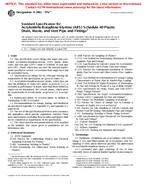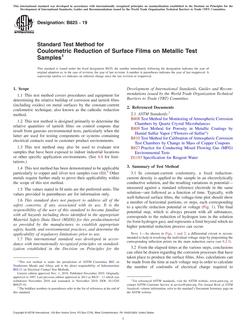1.1 This practice covers the determination of thermomechanical fatigue (TMF) properties of materials under uniaxially loaded strain-controlled conditions. A “thermomechanical” fatigue cycle is here defined as a condition where uniform temperature and strain fields over the specimen gage section are simultaneously varied and independently controlled. This practice is intended to address TMF testing performed in support of such activities as materials research and development, mechanical design, process and quality control, product performance, and failure analysis. While this practice is specific to strain-controlled testing, many sections will provide useful information for force-controlled or stress-controlled TMF testing.
1.2 This practice allows for any maximum and minimum values of temperature and mechanical strain, and temperature-mechanical strain phasing, with the restriction being that such parameters remain cyclically constant throughout the duration of the test. No restrictions are placed on environmental factors such as pressure, humidity, environmental medium, and others, provided that they are controlled throughout the test, do not cause loss of or change in specimen dimensions in time, and are detailed in the data report.
1.3 The use of this practice is limited to specimens and does not cover testing of full-scale components, structures, or consumer products.
Product Details
- Published:
- 05/01/2004
- Number of Pages:
- 8
- File Size:
- 1 file , 140 KB


